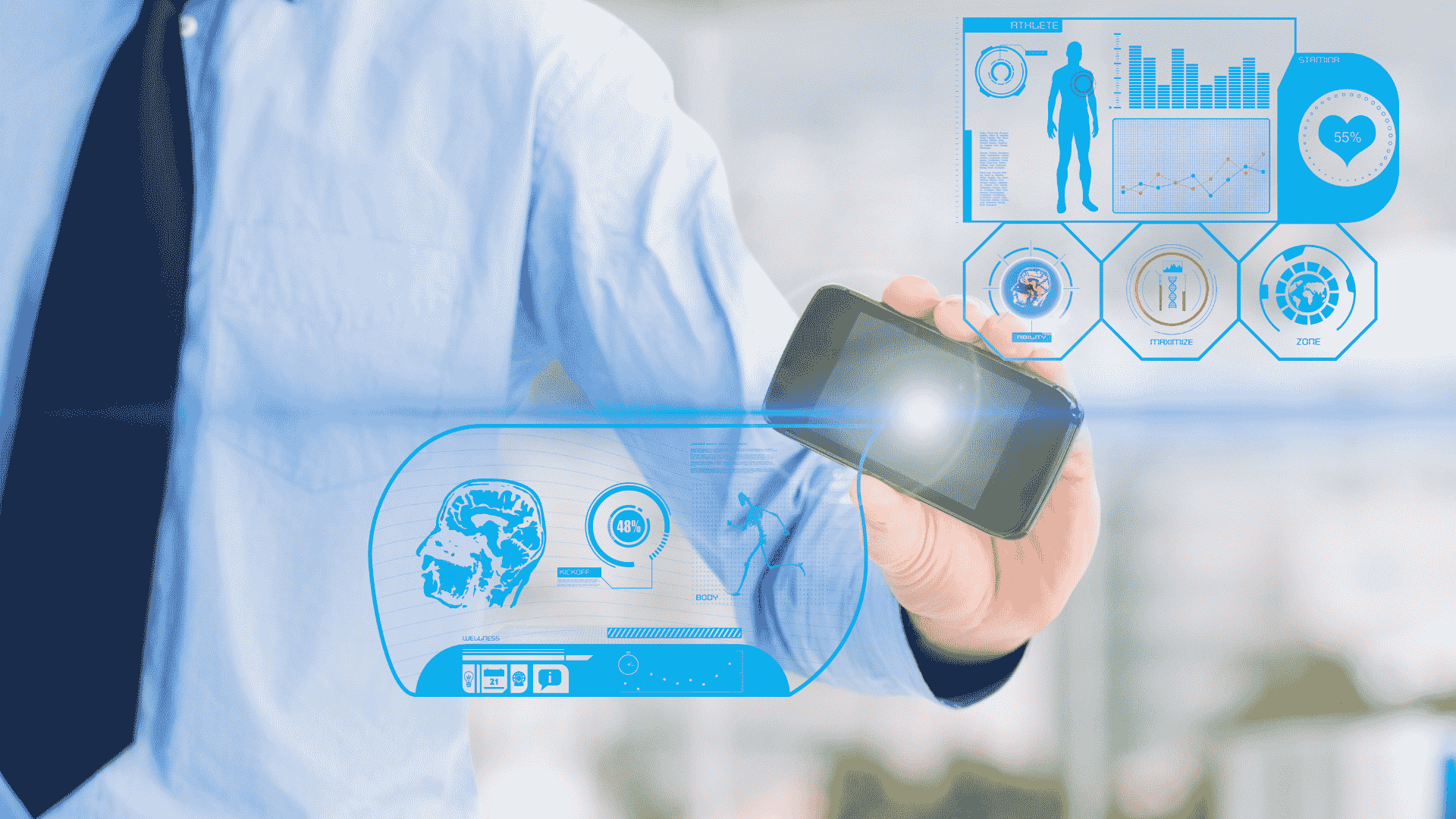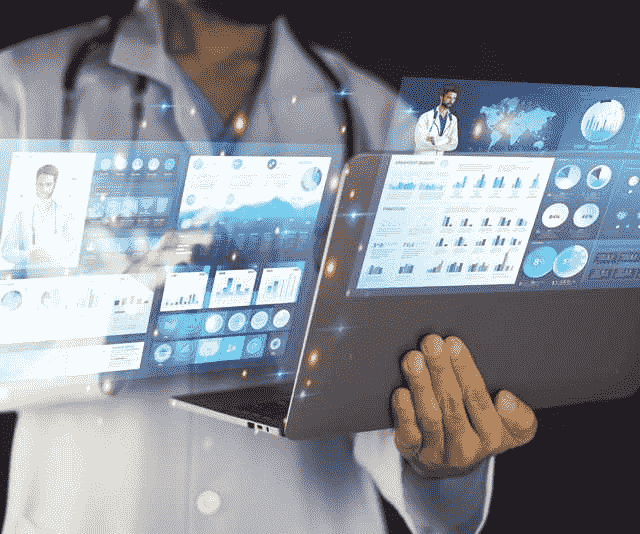Ring Central has established itself as a critical player in the ever-changing world of healthcare communications. Ring Central interfaces with healthcare systems easily, enhancing connection and streamlining operations by leveraging the power of cloud computing and AI. This connection simplifies healthcare practitioners’ complex workflows and ensures efficient and responsive patient care. As we go deeper, we’ll look at how Ring Central Integration for Healthcare software transforms healthcare interactions, rendering it more accessible for physicians to give excellent care.
What is Ring Central Integration?
Ring Central integration means connecting Ring Central’s tools with other software that hospitals and clinics use to keep track of health records. Imagine it like building a bridge between Ring Central and the programs doctors use to review your medical history. This helps everyone at the hospital communicate better and faster.
Types of Ring Central Integrations
Ring Central connectors are available in various formats, including with Electronic Health Record (EHR) providers like Epic, Cerner, and AllScripts. These are big companies that create software for securely storing patient information.
By integrating with them, Ring Central ensures that when your doctor pulls up your health details, they have all the latest updates in one place without needing to switch between different systems.
How Does Ring Central Integration Help in Healthcare?
Ring Central Integration for Healthcare software helps in many ways. For example, if a nurse updates your health information on a tablet, the doctor can see this update immediately on their computer, thanks to Ring Central connecting everything smoothly. It’s like having a group project at school where everyone’s notes are instantly shared with the whole group, making it easier to complete the project.
Moreover, these integrations allow your healthcare team to use tools like messaging and video calls directly within the health record systems.
So, if a specialist needs to be consulted about your care, they can quickly join a video call and look at your health records simultaneously, ensuring you get the best advice promptly. This kind of efficient communication is crucial in healthcare, where every second counts.
Benefits of Integration
Integrating Ring Central into healthcare systems makes life easier and better for everyone. Here are some of its benefits.
Improving Patient Engagement
When hospitals use Ring Central Integration for Healthcare software, doctors and nurses can easily connect with patients. For example, you might video call your friends, and doctors can use similar tools to talk with patients.
This helps patients feel more involved in their care and understand their health better because they can ask questions and get answers quickly. It’s like having a teacher available to help you whenever needed!
Simplifying Administrative Tasks
With everything connected through Ring Central, the people who run hospitals and clinics have fewer papers to handle and fewer complicated tasks. It’s like when your classroom is neat and everything is in order—finishing your work is much easier!
This makes the hospital’s work smoother and faster, letting them focus more on caring for patients rather than sorting out paperwork.
Enhanced Documentation
Ring Central helps keep all the patient’s information updated and accurate. Just as you would update your class notes, doctors update health records. This means that every doctor or nurse looking at the records will see the latest information, which helps them make the best decisions for patient care.
Reduced Administrative Burden
The Ring Central Integration for Healthcare software ensures that all patient information is safe and private, like keeping a diary under lock and key. It also means fewer mistakes because the system helps organize everything. So, the staff have less to worry about and can spend more time helping patients, making everyone’s visit to the hospital a bit easier and safer.
Features of Ring Central for Healthcare
AI-Powered Communications Suite
Capabilities Ring Central uses artificial intelligence (AI) to make healthcare communication more innovative and effective. This AI can understand and sort information quickly, helping doctors and staff get the information they need right when needed.
For example, if a doctor needs to know your allergy information, the AI can pull it up instantly without searching through many files.
Overview of Patient Care Solutions
Ring Central provides healthcare providers various digital channels for communicating with patients, including text, audio, and live chat.
This implies that physicians can use chat to quickly respond to patient inquiries, video call with them, or even send SMS reminders for appointments. This allows people to receive care without visiting the doctor’s office whenever needed.
High-Touch Assistance
The system also provides high-touch assistance, which means patients can feel cared for and supported at every step. Ring Central’s tools make these interactions smooth and personal, like a face-to-face visit, whether getting a reminder about taking medicine or having a video chat about symptoms.
Using these features, Ring Central helps make healthcare faster, safer, and more personal, which is great for everyone involved—from doctors to patients!
Implementation Strategy for Ring Central Integration
Steps to Integrate Ring Central into Existing Healthcare Systems
Integrating Ring Central into a healthcare system involves several key steps:
Assessment: First, understand what the current system looks like and what needs improvement.
Planning: Decide how Ring Central will fit into the existing setup and outline the steps needed for integration.
Setup and Configuration: Install Ring Central and configure it to work smoothly with current systems, such as the EHR (Electronic Health Record).
Testing: Before using it live, test Ring Central to ensure everything works correctly and securely.
Considerations for a Smooth Transition
To ensure the transition to Ring Central goes smoothly, consider these points:
Training Staff: All healthcare staff must know how to use Ring Central. Training sessions and manuals can help them get comfortable with the new system.
Data Security: Protecting patient information during and after integration is essential. Ensure security measures are in place.
Ongoing Support: Even after everything is set up, having support from Ring Central for any questions or problems can make a big difference.
These steps and considerations help make sure that integrating Ring Central into a healthcare system improves communication and patient care without causing disruptions.
Future of Healthcare Communications
Cloud-Based Healthcare Solutions
As technology advances, we expect healthcare services stored in the cloud to become increasingly sophisticated. This implies that doctors and healthcare professionals can access medical data and client information anytime, rendering it more accessible to care for people even when they are not physically present.
The Role of Generative AI in Shaping Patient Care
AI is like a super-intelligent assistant that can help doctors by providing information quickly and accurately. In the future, this type of AI might help write messages or suggest the best treatments, making communication in healthcare faster and more intelligent. With the most up-to-date information, clinicians can focus more on assisting their patients.
Conclusion
We examined how Ring Central integration for healthcare software connects existing technologies, reduces activities, and increases patient participation. With its powerful AI tools and cloud-based solutions, Ring Central makes healthcare more connected and responsive.
As healthcare technology evolves, considering Ring Central for your communication needs could help provide better care and make day-to-day tasks more accessible for everyone in healthcare. So, think about how this technology could benefit your healthcare practice or system!




